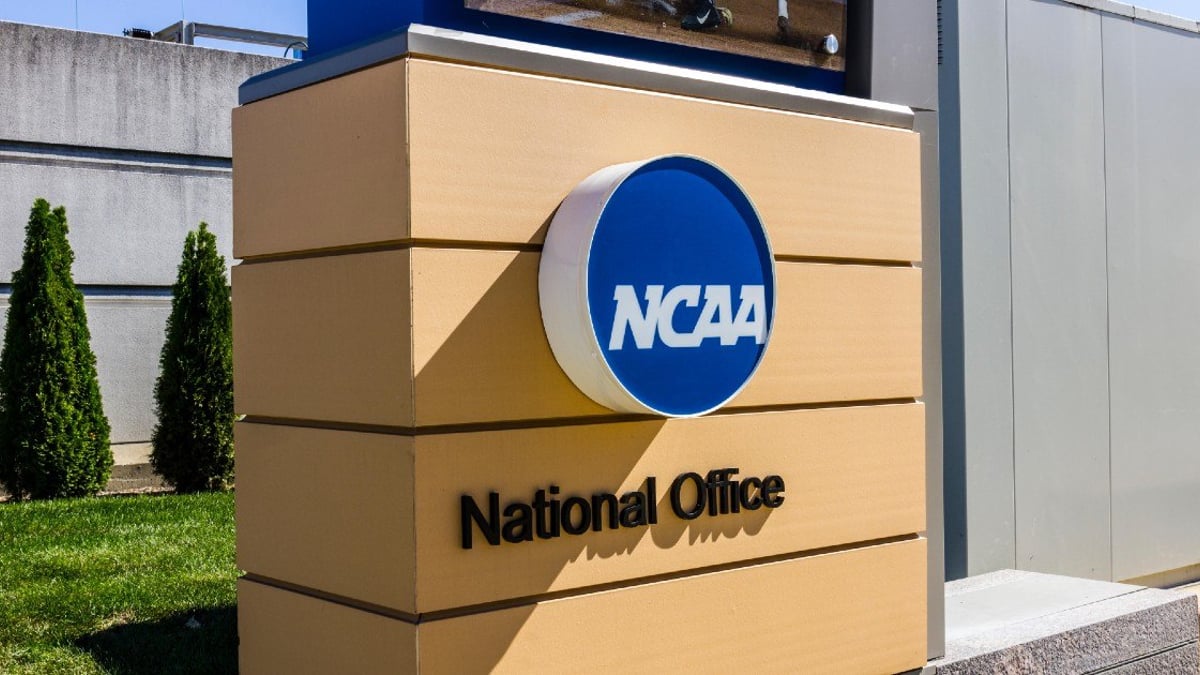Are NCAA Tournament Brackets Gambling?

March Madness is living up to its name in 2023, on and off the court. The tournament has been full of upsets and dramatic performances.
Somehow the drama spilled into gambling Twitter when now-former SuperBook employee Taylor Mathis became the center of a controversy after an innocuous tweet about using NCAA Tournament brackets as a math lesson for her sister’s 2nd-grade class.
To say this caused a stir would be an understatement. But this column isn’t about the tweet (plenty has already been said about that). Instead, it deals with brackets and their somewhat unique place in the gambling landscape.
Lumping Brackets in with Sports Betting
Every year, the American Gaming Association (AGA) researches how much money will be wagered on the NCAA Tournament. The numbers are always astounding, and 2023’s numbers were the biggest to date. According to the AGA, 68 million Americans (a quarter of the U.S. adult population) will wager $15.5 billion during the tournament.
The original impetus of the AGA research was to highlight the amount of money being bet illegally on significant events like the NCAA Tournament and the Super Bowl. Since the fall of PASPA, the Super Bowl and NCAAB betting numbers are also used to highlight the revenue generated from legal sports betting while still shining a light on the black market.
It also firmly places brackets and Super Bowl squares into the gambling bucket, although the AGA distinguishes by breaking out those numbers.
Brackets, Get Your Brackets Here
The bulk of the action will be on bracket pools. Per the AGA, 56 million Americans will participate in a bracket pool, while 31 million Americans plan to place traditional sports bets at a sportsbook or with a bookie.
That raises the question of whether participating in bracket pool gambling is a good idea. Technically, the answer is a resounding yes. But if you were to ask the general public, you’re likely to get a mixture of yes, no, and sort of answers.
The answers will vary depending on the structure of the bracket pool. Filling out a $5 bracket in the office will be viewed as fun. Filling out five $100 brackets in a contest with 400 participants has more of a gambling feel. Is that the right way to look at it? No, they’re the same activity. But perception is reality.
Scratch cards on the holidays. Regularly purchasing a lottery ticket. Entering Super Bowl and bracket pools. Fantasy sports league with friends. Keno at the restaurant. Many people participating in one of the above activities will tell you they don’t gamble. Gambling is done at a casino and for considerable sums of money,
We can make the case that gambling is black and white, but it’s far more nuanced and exists on a sliding scale for most people.
Brackets and RG Concerns
I also think it’s essential to draw a clear distinction between brackets and traditional sports bets for problem gambling reasons. Lecturing about the dangers of brackets isn’t exactly the public outreach program some think it is. Just like people who imbibe beers at weekend barbecues or have wine when eating out don’t want to be lectured about the dangers of any alcohol consumption, people who place sporadic bets don’t want a lecture on the peanuts they gamble every year.
If 56 million Americans enter bracket pools, it would seem an integral part of the experience. Framing it as a first step on a journey to addiction isn’t going to change minds. What it will do is stunt the effectiveness of other RG campaigns.
Further, I’d posit that brackets aren’t the habit-forming activity that sports betting is. A bettor who begins wagering individual games during March Madness could easily branch into in-play and parlays or continue betting on NBA games or other sports when the tournament ends.
Someone who entered a few bracket contests doesn’t have the same temptation. Brackets are a once-a-year thing. You fill them out before the first game and are stuck with them until the end. Brackets are the epitome of gambling for entertainment.
If the responsible gambling world wants to reach as many people as possible, it would be best to leave brackets on the sidelines. Yes, entering bracket pools is gambling, but it’s not the form of gambling anyone should be concerned about.










